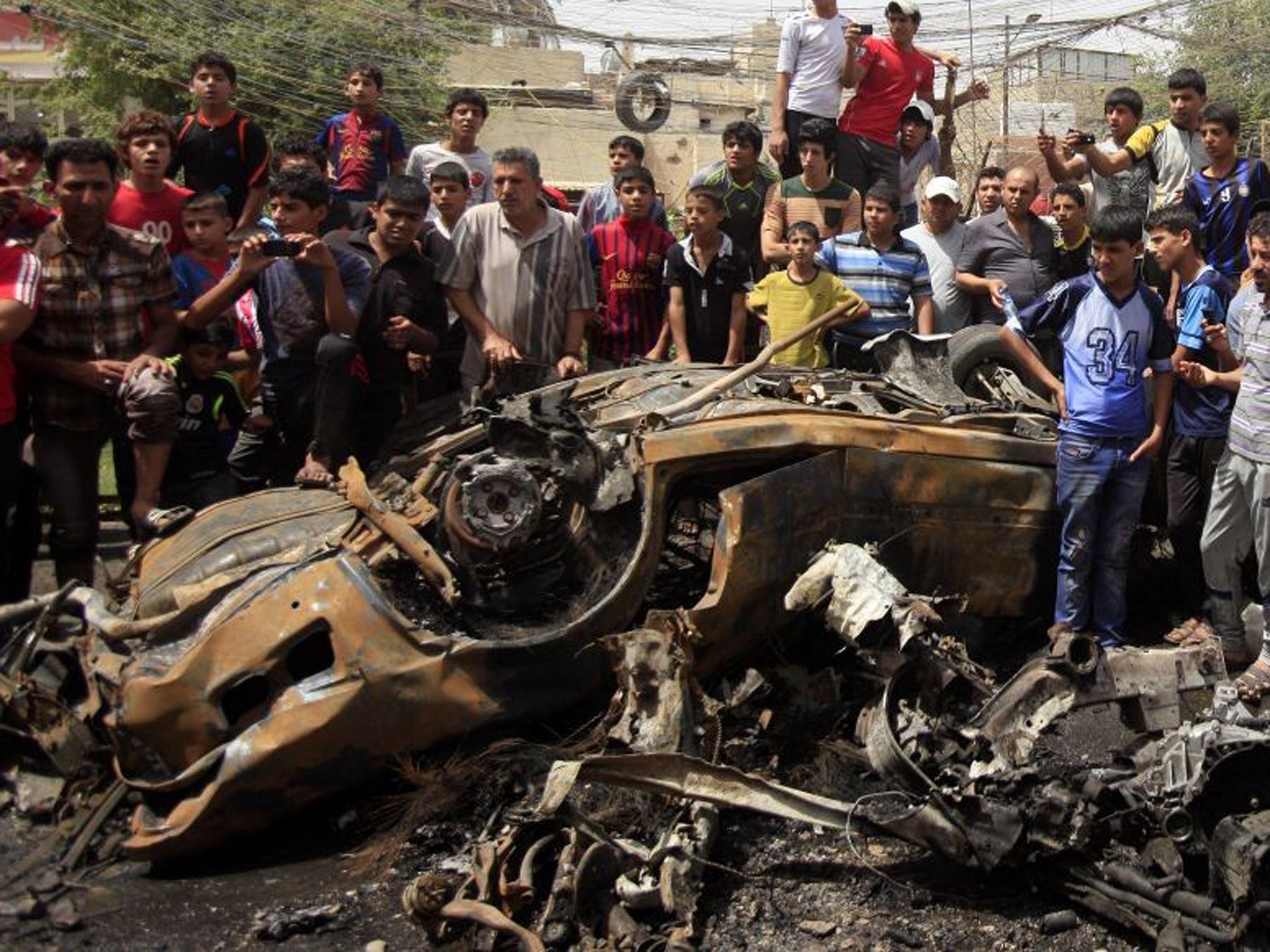Twelve killed in Baghdad car bombs a day after attacks on Shiite districts left 34 dead across Iraq
One child among the dead following attack that left 19 others injured

Your support helps us to tell the story
From reproductive rights to climate change to Big Tech, The Independent is on the ground when the story is developing. Whether it's investigating the financials of Elon Musk's pro-Trump PAC or producing our latest documentary, 'The A Word', which shines a light on the American women fighting for reproductive rights, we know how important it is to parse out the facts from the messaging.
At such a critical moment in US history, we need reporters on the ground. Your donation allows us to keep sending journalists to speak to both sides of the story.
The Independent is trusted by Americans across the entire political spectrum. And unlike many other quality news outlets, we choose not to lock Americans out of our reporting and analysis with paywalls. We believe quality journalism should be available to everyone, paid for by those who can afford it.
Your support makes all the difference.Two car bombs exploded in Shiite neighbourhoods in Baghdad this morning, killing at least 12 and wounding 30.
Police said the first blast struck a bus and taxi rank during rush hour in the Sadr City neighbourhood. A 7-year-old child was among the nine people killed. Another 16 were wounded.
The second bomb hit a small market at a taxi stop in the eastern suburb of Kamaliya, killing three civilians and wounding 14 others, according to police.
The attack follows a wave of bombings across Iraq yesterday that left 34 dead. Twenty-three of the dead were killed in just one hour yesterday evening as 11 separate attacks hit the city, leaving more than 100 others injured.
At least seven of died in Sadr City when a bomb in a parked car detonated at a bus stop.
Both yesterday and today's attacks provide a shocking example of the rise of sectarian violence in the country over the last few weeks, as tensions grow between minority Sunni Arabs and the Shia-led government.
A bloody government crackdown on militants last month in a protest camp in the country's north fueled the tension.
More than 700 people were killed in April.
Iraq's embattled Shiite prime minister Nouri al-Maliki blamed sectarian tension for the latest attacks.
"We have to know that today's bloodshed is the result of sectarian hatred and also the result of a stirring up of these sectarian tensions," al-Maliki said at a government-sanctioned conference addressing atrocities committed under dictator Saddam Hussein. Incitement could be coming from inside or outside the country, he added.
No one immediately claimed responsibility for the attacks, but car and suicide bombings are a hallmark of al-Qa'ida's Iraq branch.
The spike in attacks, after a general decrease in violence, has raised fears of a return to the sectarian bloodshed that pushed the country to the brink of civil war in 2006-2007. Shiite militias have so far been largely restrained in their reactions to such bombings.
Join our commenting forum
Join thought-provoking conversations, follow other Independent readers and see their replies
Comments